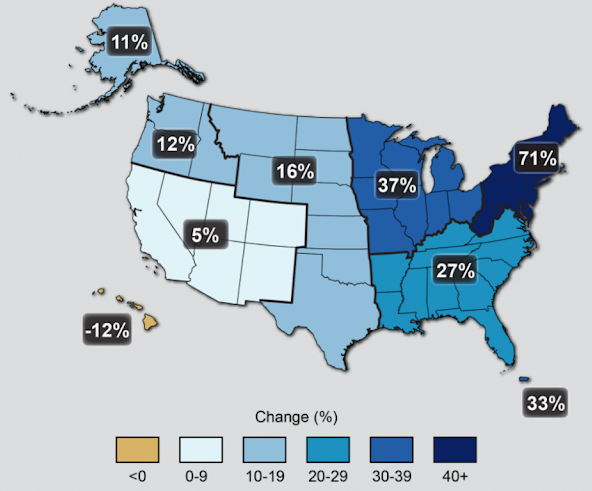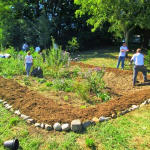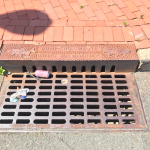New Jersey Future Blog
Stormwater Utilities—Peeling Back the Onion
November 9th, 2020 by Gary Brune
Ever since Governor Murphy signed legislation in March 2019 providing communities with the option of creating a stormwater utility to address flooding and water quality issues, two key questions have loomed: how much do municipalities and counties currently spend on stormwater infrastructure, and how receptive are they to this new concept?
In its 2020 Best Practices Inventory, the Department of Community Affairs (DCA) will ask localities both questions. The results should shed light on the current level of effort, potential funding gaps, and the willingness to explore a solution that, for some communities, might represent a more equitable way to achieve their long term vision.
Specifically, DCA’s 2020 inventory survey will have three new questions:
- How much did your municipality spend on operational costs for managing and treating stormwater runoff (e.g., street cleaning, pipe system cleanouts, storm drain/outfall maintenance, public education) last fiscal year and how much was appropriated for the current fiscal year?
- Which projects in your municipality’s most recent adopted capital budget, if any, are associated with stormwater management?
- Is your municipality either considering establishing a stormwater utility or authorizing a sewerage authority or municipal utility authority to establish a separate stormwater operation?
Why is this so important? In New Jersey, stormwater infrastructure needs have traditionally been funded through local property tax revenue, and with local budgets hard-pressed to address high profile issues such as schools and law enforcement, stormwater projects are often deferred or discounted. Chronic flooding threatens public safety, snarls traffic, and chokes economic growth. The forecast portends more of the same. Based on storm patterns since 1958, a National Climate Assessment study issued in 2015 documented a 71% increase in the severity of heavy storms affecting northeastern states such as New Jersey. (See graphic below.) Stormwater is also responsible for approximately 60% of water quality problems in the state, including harmful algae blooms that regularly plague freshwater lakes.
Observed Change in Very Heavy Precipitation, 1958 – 2012

Source: 2015 US Climate Resilience Toolkit, National Climate Assessment
Since there is no relationship between the value of a property and the amount of stormwater runoff, the property tax is a particularly poor funding source for this critical need. Similar to existing sewer and water utilities, a stormwater utility employs a more equitable user fee approach, with charges based on a given property’s degree of impervious coverage (e.g., hardened surfaces, such as driveways) that generate runoff. Under a stormwater utility, costs are more equitably allocated based on each property’s contribution to the problem.
Survey responses, which are mandatory, are due to DCA’s Division of Local Government Services by November 3, 2020. And since ongoing budget language links receipt of local aid payments from the Consolidated Municipal Property Tax Relief program to satisfactory completion of the Best Practices Inventory, a high level of compliance is anticipated. The Department plans to compile the responses into a summary report.
Detailed information about DCA’s Best Practices Inventory may be found in Local Finance Notice 2020-20 (see https://www.nj.gov/dca/divisions/dlgs/lfns/20/2020-20.pdf).
For a comprehensive overview of stormwater utilities, including key policy, legal, and financial issues, consult the recently-launched New Jersey Stormwater Resource Center at https://stormwaterutilities.njfuture.org/. The Center, prepared by New Jersey Future, is tailored to provide both basic and technical information for interested residents and local officials.
Related Posts
Tags: cost, flooding, New Jersey, Stormwater, stormwater utilities
















